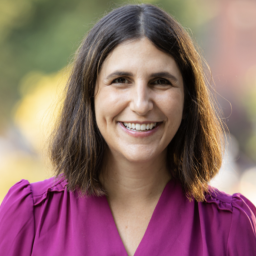Focusing on Use
When CASJE was founded, we initially focused on developing high-quality research evidence. Now our mission has widened such that we also focus on high-quality use of research evidence. To that end, and with direction from a host of much valued practitioner-leaders in Jewish education who have shared their needs and perspectives with us, we have begun to develop new tools to support educators in their efforts to use data and research evidence to improve the work they do. These tools include a research digest, a research use fellowship for practitioners (launching January 23), a discussion guide for talking about research with colleagues, and free consultations for mission-aligned organizations with questions about research and research use.
I would be remiss if I didn’t mention that research use isn’t just something people do, it’s something people can study as well. The last ten years have seen increasing attention to research into the use of research, that is research that examines how decision-makers use research to shape practice and policy. At CASJE, we have been following this line of inquiry to help us frame our own efforts to strengthen the capacity of Jewish educational leaders to use research to fuel improvements in Jewish education.
Many of the pilot initiatives introduced above are also serving as learning labs for CASJE to begin to develop a formal body of knowledge about how Jewish communal leaders think about and use research. Our questions include, How do Jewish educational leaders define research? How do they access research? What mindsets and skills do they bring to their assessment of research? What are the ways research shapes their thinking and activities? How can relationships between researchers and practitioners help foster more high-quality research that is useful and used?
As we pilot these new initiatives and begin to learn more about the use of research evidence in Jewish education, we look forward to hearing from you, both about how you are using our tools and how you are using research more generally in your work.



